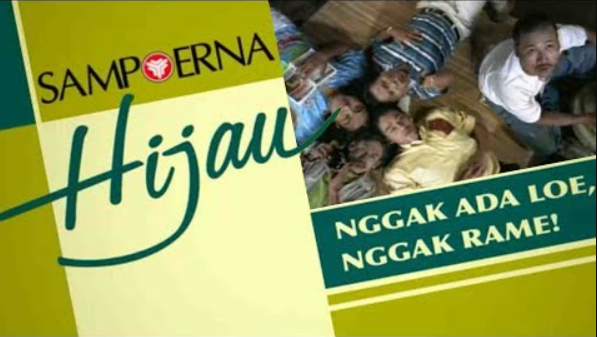- Get link
- X
- Other Apps
Posted by
Iman Prabawa
on
- Get link
- X
- Other Apps
Halo semuanya, ketemu lagi sama saya, Iman Prabawa. In this article, I want to talk to you about the meaning of the word [ada] in Indonesian. As always, we are going to be watching examples from movies, comics, and others where the word [ada] is used by Indonesians.
If you have any questions regarding the Indonesian language, you can ask me directly. You can see how to do that on my About Me page.
If you are a beginner in the Indonesian language, you can learn step by step with My Lesson Here.
So, without further ado, let's talk about this.
Meaning of Ada In Bahasa
The first meaning of [ada] is when we refer to the existence or presence of someone or something. It's like [there is] or [there are] in English.
Example sentences:
1. Di rumah itu penghuninya ada 3 orang. (There are 3 residents in that house.)
2. Ada yang baru di menu rumah makan ini. (There is something new in this restaurant's menu.)
The second meaning of [ada] is when someone or something exists at a place.
Example sentences:
1. Ngga ada loe, ngga rame! (It's no fun without you (exist here)!)
2. Ibu kamu ada di rumah sekarang? (Is your mother at home now?)
The third meaning of [ada] is to have (something).
Example sentences:
1. Ada air putih, bu? (Do you have water, ma'am?)
2. Saya lihat sepertinya ada sesuatu yang sedang kamu pikirkan. Ada apa? (You seem to have something on your mind. What's wrong?) (*Ada apa? is literally translated as [What exists?)
Next, we are going to hear how to pronounce the word [ada].
How to Pronounce Ada
Here is how you pronounce [ada] in Bahasa Indonesia.
Moving on, we will look at examples where Indonesians use the word [ada].
Examples Of Ada In Use
The first example we are about to watch is from a movie called Cek Toko Sebelah 2 (2022). Let's watch the clip below.
Natalie: Ngapain kamu? (What are you doing?)
Erwin: Sabar, saya bukan orang jahat. (Easy! I'm not a bad guy.)
Natalie: Bohong! (I don't believe you!)
Erwin: Bener, bener, bener. (No caps!)
Natalie: Eit, eit, eit, ngapain? (Hey, hey, hey, what are you doing?)
Erwin: Bukan, bukan, engga, ini, bukti, bukti. Tuh! Saya bawa laptop. Mana ada orang jahat bawa laptop? (No, no, no, this, this is the proof. Here! I brought a laptop with me. Bad guys don’t bring laptops!)
Natalie: Ada! Maling laptop. (Yes, they do! Laptop thieves.)
Erwin: Iya juga. (That makes sense.)
In this scene, Natalie has a flat tire, and then somebody stops by to help her. His name is Erwin. When Erwin approaches the car, Natalie asks him what he is doing because she thinks Erwin is some kind of a bad guy.
Erwin then shows that he is not a bad guy, and he shows his laptop to her to reassure her he is not a bad guy because, in his opinion, no bad guys bring laptops with them. That's why he says this,
Mana ada orang jahat bawa laptop? (There are no bad guys who bring laptops with them!)
And then Natalie responds with,
Ada! Maling laptop. (Yes, there are! Laptop thieves.)
So, [ada], in this scene, refers to the meaning of the number 1 that I explained above; that is, it refers to the existence of someone.
Vocabulary From the Scene
[Ngapain] is the colloquial way of saying [melakukan apa] = to do what.
[Kamu] is informal for [Anda] = you.
[Orang jahat] = bad guys.[Bohong] = lie.
[Bener] is informal for [benar] = true.
[Engga] = [ngga] = [ga] = no.
[Tuh] is informal for [itu]. For more about this, you can read my article here: Tuh in Indonesian.
[Maling] is informal for [pencuri] = thieves.
[Iya juga] is used when you agree with what someone says.
The second example is from Bang Mpin's YouTube Channel. Let's watch the clip below.
Bapak Pemilik Warung: Ini menu baru dari Pekalongan. Baru dapet kemaren ini. Menu baru Pekalongan. Ciri khas Pekalongan nih seperti ini. (This is our new menu from Pekalongan. I got this recipe only yesterday. This new dish is from Pekalongan. It's a traditional rice dish in Pekalongan is like this.)
Bang Mpin: Dulu belum ada? (You don't have this back then?)
Bapak Pemilik Warung: Belum ada. Ini baru nih! Baru dua hari ini nih. Kemarin sebentar abis, lha, banyak orang yang ini. Bikin lagi hari ini. (Nope, we don't have this back then. This is new! It is only two days. We made this yesterday, and it's sold in a jiffy. Many people like it. So, we make it again today.)
Bang Mpin: Oh, banyak yang suka berarti? (Oh, so it means many people like it?)
Bapak Pemilik Warung: Iya. (Yes.)
The word [ada] in this clip refers to the third meaning that I explained above, that is, to have (something).
Vocabulary From the Scene
[Bapak Pemilik Warung] = owner of the store or restaurant.
[Baru] = new.
[Pekalongan] is the name of a city in Central Java.
[Ciri khas] is something that someone or something is known for.
[Nih] here can mean many things depending on the context. I have made an article that explains this in detail. You can read it here: Nih in Indonesian.
[Dapet] is informal for [dapat] = get.
[Dulu] = back then.
[Kemaren] is informal for [kemarin] = yesterday.
[Abis] is a common reduction for [habis] = empty.
[Bikin] is the colloquial form of [buat] = make.
[Banyak] = many.
[Berarti] in [banyak yang suka berarti?] you can also switch the order into [berarti banyak yang suka?]. In this case, it's explaining something. It's like [it means...(many people like it)].
Read also: Pengen Meaning In Indonesian
This is all for now. If I find another example, Insha Allah, I will update this article again. Thank you for reading my article, and I'll see you soon. Buh-bye.
- Get link
- X
- Other Apps
Hello, I'm Iman Prabawa a.k.a Pak Guru Iman. I love to share about languages. My Instagram, @iman_prabawa


Comments
Post a Comment